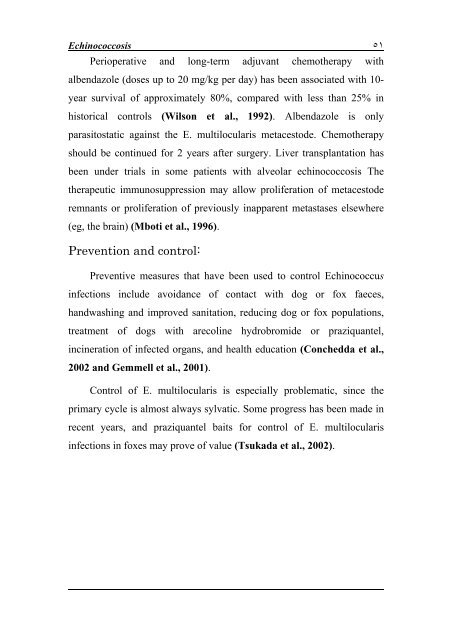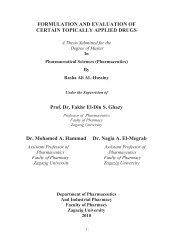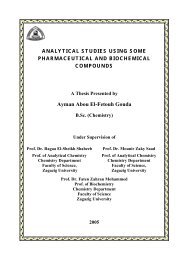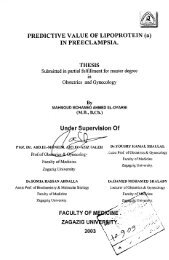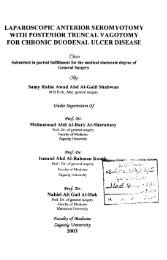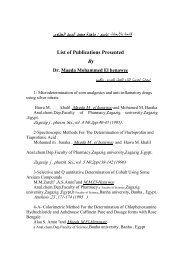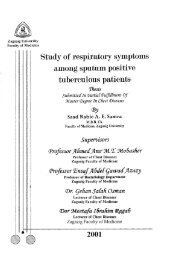Parasites and Biliary stones
Parasites and Biliary stones
Parasites and Biliary stones
Create successful ePaper yourself
Turn your PDF publications into a flip-book with our unique Google optimized e-Paper software.
Echinococcosis ٥١<br />
Perioperative <strong>and</strong> long-term adjuvant chemotherapy with<br />
albendazole (doses up to 20 mg/kg per day) has been associated with 10-<br />
year survival of approximately 80%, compared with less than 25% in<br />
historical controls (Wilson et al., 1992). Albendazole is only<br />
parasitostatic against the E. multilocularis metacestode. Chemotherapy<br />
should be continued for 2 years after surgery. Liver transplantation has<br />
been under trials in some patients with alveolar echinococcosis The<br />
therapeutic immunosuppression may allow proliferation of metacestode<br />
remnants or proliferation of previously inapparent metastases elsewhere<br />
(eg, the brain) (Mboti et al., 1996).<br />
Prevention <strong>and</strong> control:<br />
Preventive measures that have been used to control Echinococcus<br />
infections include avoidance of contact with dog or fox faeces,<br />
h<strong>and</strong>washing <strong>and</strong> improved sanitation, reducing dog or fox populations,<br />
treatment of dogs with arecoline hydrobromide or praziquantel,<br />
incineration of infected organs, <strong>and</strong> health education (Conchedda et al.,<br />
2002 <strong>and</strong> Gemmell et al., 2001).<br />
Control of E. multilocularis is especially problematic, since the<br />
primary cycle is almost always sylvatic. Some progress has been made in<br />
recent years, <strong>and</strong> praziquantel baits for control of E. multilocularis<br />
infections in foxes may prove of value (Tsukada et al., 2002).


